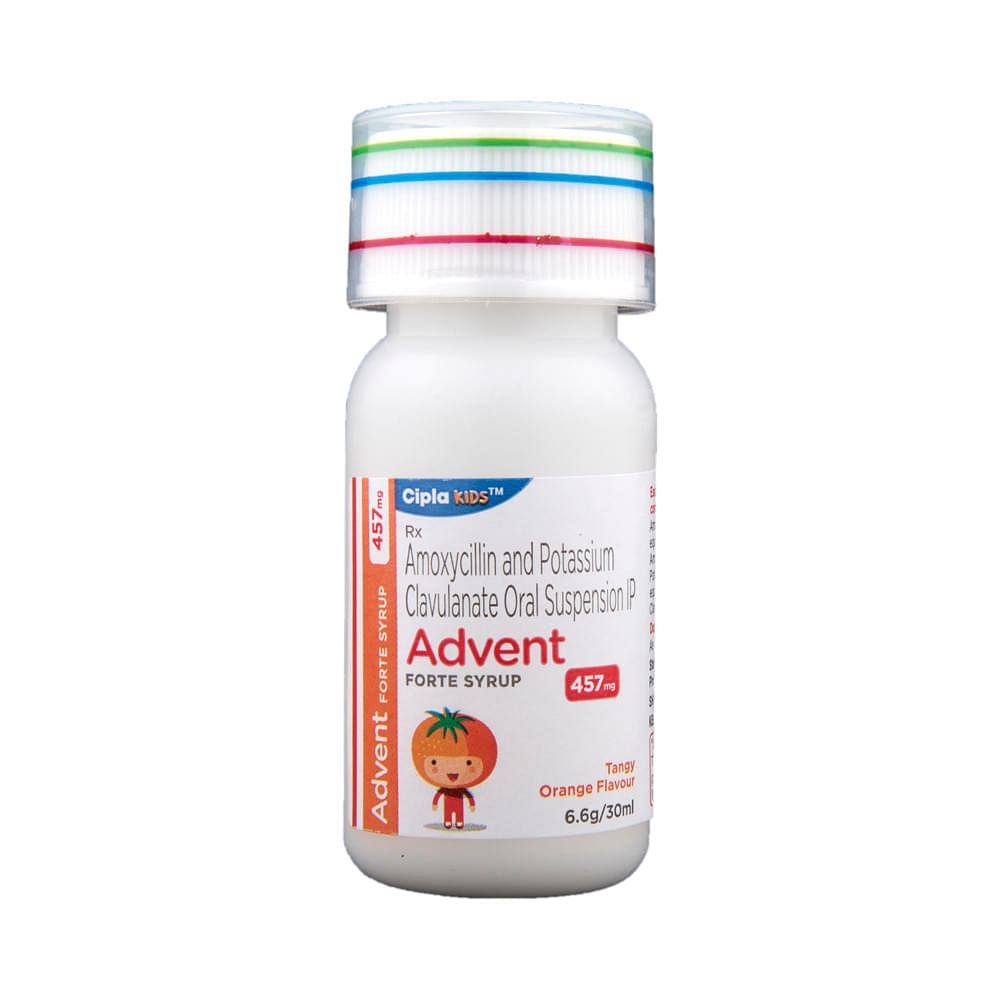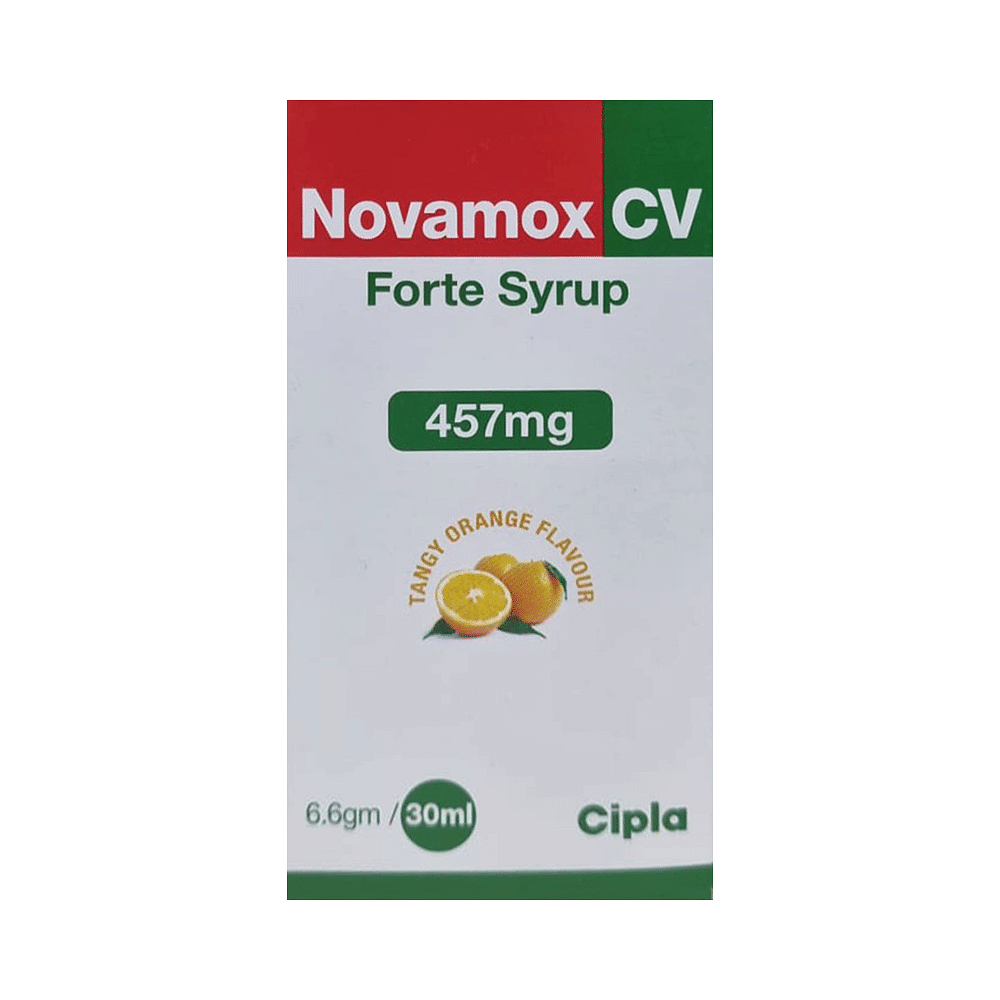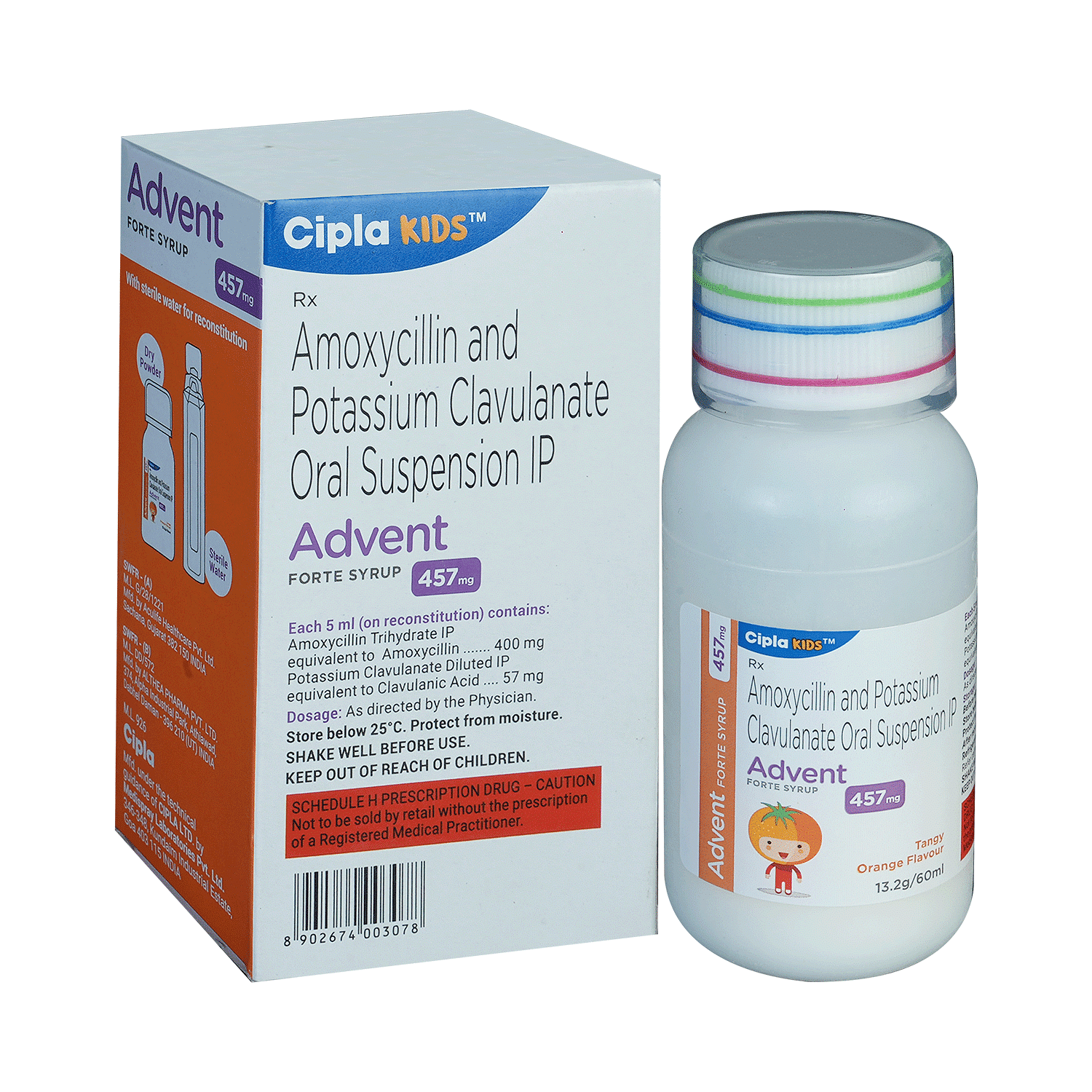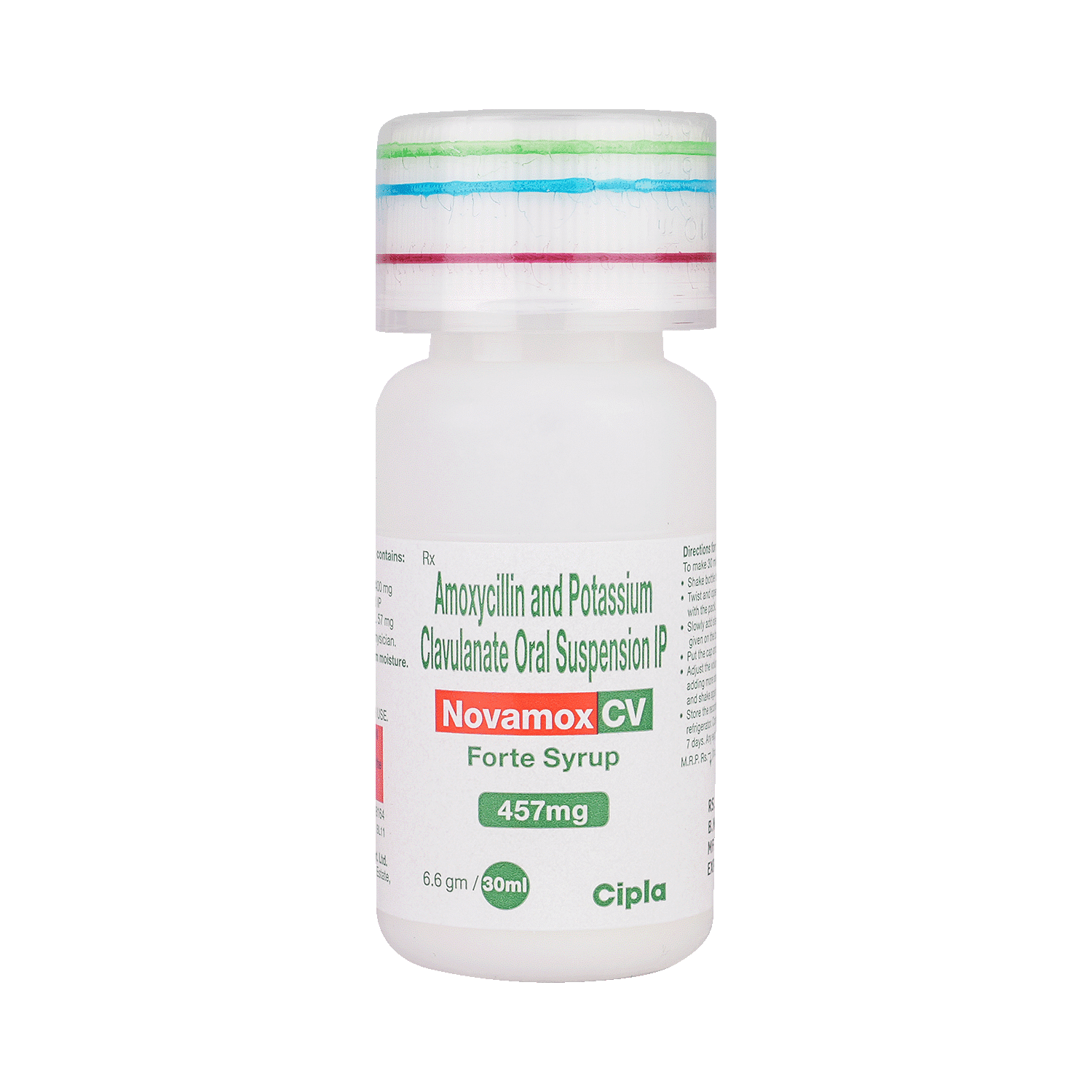
Clavar DS Syrup
Manufacturer
Total Healthcare
Salt Composition
Amoxycillin (400mg/5ml) + Clavulanic Acid (57mg/5ml)
Key Information
Short Description
Clavar DS Syrup is an antibiotic medicine that helps treat bacterial infections of the ear, nose, throat, chest, lungs, teeth, skin, and urinary tract.
Dosage Form
Syrup
Introduction
Clavar DS Syrup is an antibiotic medicine that helps treat bacterial infections of the ear, nose, throat, chest, lungs, teeth, skin, and urinary tract. It is capable of killing bacteria that have become resistant to other therapies and thus also helps treat tuberculosis that is resistant to other treatments.
Directions for Use
Your child must complete the entire course of antibiotics. Stopping too soon may cause the bacteria to multiply again or cause another infection.
How it works
Clavar DS Syrup is an antibiotic. It has two active agents amoxycillin and clavulanic acid. Amoxycillin works by preventing the formation of the bacterial protective covering (cell wall) essential for the survival of the bacteria. Whereas clavulanic acid serves a special purpose of inhibiting an enzyme (beta-lactamase) that is produced by resistant bacteria. This makes the combination of amoxycillin and clavulanic acid an effective line of treatment for many types of infections.
Quick Tips
Your child must complete the entire course of antibiotics. Stopping too soon may cause the bacteria to multiply again or cause another infection. Your child may have a bitter taste in the mouth after the intake of Clavar DS Syrup. Eating citrus fruit or sipping plenty of water or fruit juice may help. Encourage your child to drink plenty of water in case diarrhea develops as a side effect. Never give Clavar DS Syrup until and unless prescribed by the doctor. Do not give Clavar DS Syrup to treat common cold and flu-like symptoms caused by viruses. Never save medicine for future illnesses. Check ‘expiry’ before giving Clavar DS Syrup to your child. Immediately discard all the expired medicines. Stop Clavar DS Syrup immediately if your child develops an itchy rash, facial swelling, or breathing difficulty. Report to the doctor without any delay.
Related Medicines

Advent Forte 457mg Syrup Tangy Orange

Novamox CV Forte Syrup

Advent Forte 457mg Syrup Tangy Orange

Novomox Cv Forte Syrup

Cynoclav DS Syrup

Novamox CV Forte Syrup

Moxbro-CV DS Syrup

Curam 400mg/5ml/57mg/5ml Syrup

Clavnax Forte Syrup

Amoclave DS Syrup
Frequently asked questions
Can other medicines be given at the same time as Clavar DS Syrup?
Clavar DS Syrup may interact with other medications. Before starting Clavar DS Syrup, inform your child's doctor about all other medications they are taking. Consult your child’s doctor before administering any medication to your child.
Can I get my child vaccinated while on treatment with Clavar DS Syrup?
Antibiotics usually do not interfere with the ingredients in vaccines or cause a negative reaction in a child who has just been vaccinated. However, children taking antibiotics should not be vaccinated until they have recovered from the illness. As soon as your child feels better, the vaccine can be administered.
Which lab tests may my child undergo while taking Clavar DS Syrup on a long-term basis?
Periodic kidney and liver function tests might be recommended during prolonged treatment with Clavar DS Syrup to monitor your child's condition.
Can I give a higher than the recommended dose of Clavar DS Syrup to my child?
Giving a dose higher than recommended for Clavar DS Syrup can increase risks of side effects. If your child experiences worsened symptoms, contact your doctor for re-evaluation.
Can I stop giving Clavar DS Syrup to my child when the symptoms are relieved?
Do not stop giving Clavar DS Syrup without completing the full course, even if you feel better. Symptoms may improve before the infection is completely cured, so continue taking the medicine as prescribed.
Can the use of Clavar DS Syrup cause diarrhea?
Yes, Clavar DS Syrup can cause diarrhea. It is an antibiotic that kills harmful bacteria and may disrupt the balance of helpful bacteria in your child’s stomach, leading to diarrhea. Encourage your child to drink plenty of fluids if they experience diarrhea. Contact your doctor immediately if diarrhea persists or you notice signs of dehydration such as less frequent urination with dark-colored and strong-smelling urine. Consult your doctor before giving any other medication to your child.
Do all viral common colds result in secondary bacterial infection?
Most viral cold infections do not lead to secondary bacterial infections. While antibiotics can be used, it is best to consult your doctor for the proper course of action.
The mucus coming out of my child’s nose is yellow-green. Is it a sign of a bacterial infection?
Yellow or green nasal mucus does not automatically indicate a need for antibiotics in a common cold. During a cold, mucus often thickens and changes color from clear to yellow or green. Symptoms usually last 7-10 days.
Is there any sign which shows that my child needs immediate medical attention?
Seek immediate medical attention if your child experiences serious allergic reactions (breathing difficulties, skin rashes), gastrointestinal infections (diarrhea), or liver damage (weakness, paleness, vomiting). While rare, these are significant side effects requiring expert help.


